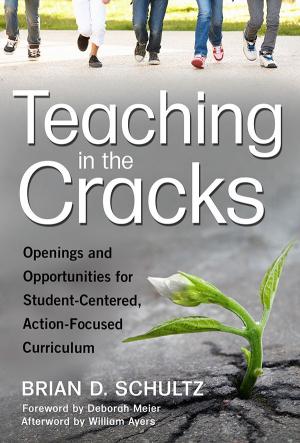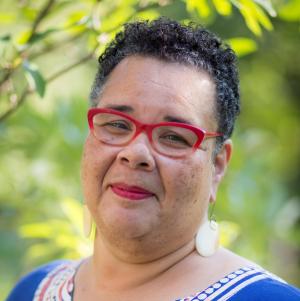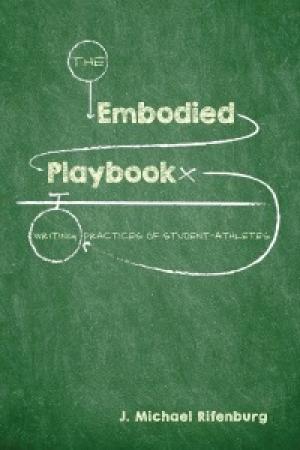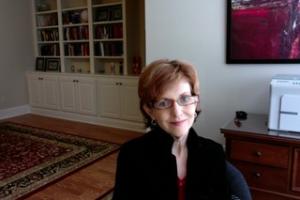Resources

Teaching in the Cracks: Openings and Opportunities for Student-Centered, Action-Focused Curriculum Brian D. Schultz New York, NY: Teachers College Press, 2017 (xiv + 128 pages, ISBN 9780807758311, $29.95) Teaching in the Cracks by Brian D. Schultz, a professor of education at Northeastern Illinois University in Chicago, explores ways to make current K-12 classrooms more student-empowering, justice-oriented, and action-based. It is not that already available curricula are not student-empowering, have no concern for justice, or seldom inspire creative student actions; What most concerns the author are school systems that dictate almost everything that students experience, think, and do. In such a system, says Schultz, learning is largely top-down, authoritarian, controlled by agendas that perpetuate the status quo, and “bombarded by standards, assessments, [and] evaluations” (86). Shultz’s critiques and enthusiasm focus on reforming this “troubling” system and more specifically on transforming current everyday curricula in classrooms (86). His proposal, however, stays at the level of reforming or transforming, rather than completely negating or overhauling our current educational practices. That is why he calls his suggestive methodology and transformative tactics “teaching in the cracks.” He encourages educators to find creative loopholes in the present system where they can make education more democratic, collaborative, and thus bottom-up. Schultz acknowledges that his proposal sounds great on paper but is hard to implement in the classroom, and so throughout he offers numerous practical examples of proposed curricula and how they are working around the nation. Examples vary, covering everything from a single classroom, the entire school’s curriculum, forming close partnerships with surrounding communities, and specific topics, to teacher preparation (all covered in chapters two to six). Together they make this book an invaluable reference for field educators. In particular, chapter six, “Becoming the Teacher I Want to Be: Finding Support to Teach in the Cracks,” and chapter seven: “Turning the Corner: Techniques, Resources, and Tools for Taking-Action,” should be helpful for those who would like to implement the proposed learner-centered class education in a seemingly impotent school context. In chapter six, Schultz gives two fine examples of veteran teachers who introduced several effective strategies that are applicable to other contexts as well. To be sure, contexts differ. Yet, as long as a similar school structure is involved (for example, executive administrators, a sizable student body and its own governing entity, supportive community groups, and an aspiring teacher), these strategies would be beneficial anywhere. Websites introduced in chapter seven are extremely useful resources too. This book is not per se a theoretical book on student-centered, action-focused curriculum. Rather, it is full of vivid examples of actual current practices. Some readers may find this book insufficiently radical to make a dramatic change in the existing school system, but that is not the author’s purpose. Its particular strength lies in its unabashed focus on the classroom itself. The author believes that the real change can and must happen in each individual classroom where the teacher and students meet for daily education, before any large-scale systematic change is possible. In this respect, this book provides a small, yet reliable, hope for most field educators who, like me, aspire to create a more learner-led class environment.
A 2017 course by Jessica Starling examines "acts of self-discipline in a variety of cultural contexts, including Eastern (Jain, Hindu, Buddhist), Western (Stoic, Christian mystic), and modern secular (eco-activism, fasting diets, and extreme exercise regimes)" and through this "various understandings of the self, the body, desire, liberation and virtue."

Belonging is a yearning of the soul. Our life’s quest is often about finding the place, purpose or persons to which or to whom we belong. We need to feel at home; we yearn to feel accepted, swaddled by our relationships. We want to experience being part of something bigger than our finite, individual, selves. The experience of belonging makes us keenly aware of the connectional-joy of humanness. Equally, the experience of alienation, of having no place to call home, of being deemed inferior, is a profound experience of dehumanization and is soul dampening. Twenty-first century racism would have minoritized people believe that we are “welcome,” only then to be immersed in experiences of disrespect, disregard and hatred. At best, this creates a psychic quandary for us. At worst, this harm is debilitating to our ability to teach and to learn. The magnitude of the need to belong necessitates a pedagogical priority, especially in those white schools with minoritized persons on faculty, on staff and in the student body. The seminary where I am on faculty is located in a very affluent New Jersey suburb. The town is a bedroom community for executives and corporate giants of Manhattan. Consequently, we enjoy clean streets, splendid restaurants, a preponderance of shopping, great theatre, and a world-class jazz club. Also, consequently, is the existence of a clear two-tier caste society: those who live here and those who come to work as cashiers, waitresses, nannies, elder care worker, gardeners and secretaries. I, due to faculty housing, live in this town. Typically, the workers who come to town are African-American and Latinx. The residents are typically white. I am routinely treated by fellow residents, as well as by commuter workers, as if I do not belong here. I am African-American living in this affluent county – an embodied oxymoron, at best. I pay taxes here, vote here, work here, but, from the gaze of the racist eyeball, I do not belong here…. I’ve lived here for twenty years. Recently, I was having breakfast at the local diner with our dean, Javier Viera. Dean Viera, born in Puerto Rico, is fluent in Spanish. When the waitress came to our table to take our order, she was, as she always is, pleasant, and, in retrospect, sad. I did not notice her sadness until it morphed into a smile. What made her smile was when Javier greeted her in Spanish and ordered his breakfast in Spanish. When Dean Viera spoke to her in Spanish it both surprised and delighted her. Her face lit up like a Christmas tree. At his speaking, she went from an almost invisible presence to a woman of dignity. This drastic shift happened when she was spoken to in a language which signaled her belonging – or more accurately, her shift happened when she received the signal that she was not alone, not alien. The Dean could have ordered in English. I did. Instead, in that moment he chose a language which invited the waitress to know a little bit of who his people are, what his allegiances are, and the kind of man he is. In this moment of belonging, he code-switched. A few years ago, I drove into the school parking lot and whipped into a space designated for faculty. I literally parked in front of the sign that read “Reserved for Faculty.” Distracted by my own thoughts, I got out of my car, opened the back door to get my briefcase and bags, then shut both car doors. Still distracted as I walked, I headed up the path to the seminary building, intending to go straight to class. Joe (not his name) was a facilities staff person whose job it was to place temporary signs around campus for upcoming events. Joe had worked at the school longer than I had and by that time I had been there for more than ten years. Joe, seeing me park in faculty parking, stopped hammering a signpost near the space where I parked. He shouted over to me, “You can’t park there.” In Black woman fashion, I decided I did not want to be bothered, this day, with this kind of #$%@##. Without replying or acknowledging him in any way (ignoring is a Black woman survival strategy), I kept walking. Joe raised his volume and shouted in my direction, “That’s for faculty. YOU can’t park there.” As I entered the building I looked over my shoulder to see that the sign-man had left his assigned task, walked over to my car and was inspecting the parking tag in my car window. I suspect Sign-man was surprised when my tag read “Faculty.” Even when I “belong,” Sign-man, on the lowest tier of the hierarchy, believes he can police me and tell me that I do not belong. WTH! $%##*! Though my enthusiasm at the start of any fall semester wanes, my clarity of purpose sharpens. At the end of the orientation worship service I position myself in the hallway. As the new students leave the chapel, I ferret-out the new African American and African students, shake their hands, read their name tags aloud. I ask in which degree program they are enrolled and inquire about their fall course selection. While doing this, I keep an eye on the stairway. If it looks like a student who I have not spoken with is going down the stairs, I, in true old-Black-church-woman style, snap my fingers to get his/her attention, then wave them over to me. As I corral each student, I use Black church gestures and tones telling them, don’t wait for trouble, then decide to come find me; come sit in my office soon and we will get acquainted. I tell them to email me and we will have coffee or lunch - soon. I want them from their first day to know, at least a little bit, that they are not alone in this place. I tell them that the protocols and practices of respect, decency, and regard of Black church culture are, with their presence, operative and that I am a representative of our shared culture. I want them to know that this school has something of merit to offer them if they can just figure out how to extract the best and leave the rest. I want my gesture to signal to them my availability to help with this leg of their holy journey. I tell them, I, like the other old women of our church tradition, in any given moment, can reach in and down to my DD-located-coin-purse for a piece of money, a freshly pressed handkerchief, a peppermint candy or a straight edge. For me, the importance of this gesture is like what our dean did for the waitress. Or, more importantly, an antidote for when, not if, the sign-man speaks to them on our campus. I am trying to communicate, in the midst of all the hollow rhetoric of “welcome,” that they belong in our school because our people have fought and won the right for us to be in this place. I code-switch. I code-switch in ear-shot of the public to signal to the African and African-American students, at least a little bit, that their racial/cultural identity is part of this place and that their/our expressions of religion, faith, values and community are here, at least a little bit. It does not take Jim/Jane Crow era signs reading “Whites Only” at the water fountains and bathrooms to make people of color feel unwelcomed. Strategies of hatred and alienation are maintained in the DNA of the institution as well as by the sign-posters on payroll. By now, I have been at my desk long enough to have a modicum of authority, some institutional voice, and can exercise some mother’s-milk-given moxie. At this stage, I possess less fear of reprisal or sabotage and more orneriness. My orneriness is one of the gifts of having survived into crone-hood; it is a gift from the ancestors, a pay-off of having earned the distinction of full professorship and being near retirement. As a person who has earned influence and power in this profession, I feel it my obligation to use this cachet to tell Black students that they belong and then to work until it happens. This year, after my practice of greeting all the students of the African diaspora, I made my way to the foyer for the buffet lunch. I was joined in the que by a tenure-track faculty colleague who is Korean. A new student came up to my colleague and, in greeting each other, they spoke in Korean. After the brief exchange, my colleague introduced me to the student in English. I was glad my colleague also understands the necessity of code-switching to assist Korean students in feeling that they belong, at least a little bit. Later that week, the same colleague and I went to dinner. We chose a sushi restaurant. The maître d’ greeted us at the restaurant entrance, then sat us at a table. He took my friend’s drink order in Korean and mine in English. Once the man left the table side – I playfully feinted insult and asked my friend why the maître d’ had not spoken to me in Korean. My friend tipped his head forward and, looking at me over his glasses, smiled. The truth telling of his culturally familiar gesture made me laugh out loud.

Michael Rifenburg begins and ends his book with the melancholy story of a student who didn’t make it. A freshman at Auburn University, “Trey” was a star on the football field, but a dud in his classes. Rifenburg – then a master’s student working as a tutor for athletes – tries to help him, but it doesn’t work. When the Auburn football team wins a national championship a few years later, Trey has already dropped out and disappeared. Rifenburg’s book helps us understand what went wrong with Trey’s education. His ultimate argument – that writing teachers can better support student-athletes by understanding the embodied knowledge they bring from the playing field to the writing classroom – asks teachers to see the hidden talents in even those students labeled remedial. Rifenburg pushes past both the “dumb jock” stereotype and the tension that exists between academics and athletics in many colleges. He breaks down these misconceptions and boundaries to explain student-athletes as possessors of “a prior knowledge honed through bodily engagement with text and through writing practices that privilege the body as a central mode of meaning making” – a knowledge that has long gone unrecognized and untapped in the writing classroom, where the abstract practice of writing can seem disconnected from physical experience (5). As a graduate of Division I sports powerhouses like Auburn and the University of Oklahoma – where he worked in a writing center dedicated to serving student-athletes – Rifenburg is well-poised to make this argument. He was embedded for a season with the University of North Georgia’s men’s basketball team, where he attended practices and interviewed players and coaches about how they make meaning on the field. He performs detailed readings of baffling football plays from Auburn’s thick playbooks. His conclusion is that student-athletes learn complex theoretical plays through physical engagement, with the implication that this kind of learning is multi-modal, exacting, and collaborative – and potentially transferable to the traditional writing classroom. He concludes that student-athletes learn their sport through three “cognitive processes”: spatial orientation (or understanding their bodies in relationship to other bodies on the field), haptic communication (or physical touch, as when a coach re-positions a player’s hips), and scaffolded situations (or the step-by-step process through which players build up to learning a complex play). For Rifenburg, these skills are not that different from what writers do: position their ideas in relationship to other peoples’ (or spatial orientation), understand writing as a communal activity that takes place within and between groups of people (or haptic communication), and build upon many early drafts to create longer, complex texts (or scaffolded situations). He ends by prompting the reader to ask how these cross-currents between writing and playing can be leveraged to support student-athlete writers in the classroom. In the end, Rifenburg raises more questions than he answers. His description of the analogy between writing and playing sports is original and clear-sighted, but it remains only an analogy, as he stops short of offering strategies for putting this insight into action – an odd lacuna for a book that places so much emphasis on concrete, embodied experience. Indeed, I often found myself mindful of what is left out of Rifenburg’s book. While he displays deep familiarity with the field of writing studies, he does not acknowledge gender studies or disability studies, fields that are historically groundbreaking in exploring embodied meaning. Similarly, Rifenburg’s focus is exclusively on men playing high-profile, competitive, aggressive sports; do other types of athletes experience bodily knowledge differently? What of swimmers, runners, or dancers? Women athletes? Do student-athletes at small liberal arts colleges or community colleges – where athletics are not as prominent – experience a different kind of relationship between sports and academics? Rifenburg’s study opens the door for many important inquiries to follow. Ultimately, he provides a model for thinking about matter, mind, and underexplored student expertise.

I love the face-to-face learning environment. Even when I stood before my first class, uncertain if I knew enough to teach for 10 minutes much less 75, I thrived on the energy in the room. I also felt somewhat at ease with the basics, given I could draw on a lifetime of experience as a student. When we become teachers, most of us start by emulating the best we have known and their classrooms. In my career, I have handled the auditorium lecture, the seminar, the project-based learning course, and on-site education in the streets of another country. I had good models for them all. Then came online. Until I started working on a system-level “e-learning” committee, I knew little about this mode of delivery. It did not exist when I went to school. And at my institution, there was a decided distrust about the whole enterprise. Most faculty thought online education ran counter to the best of what college instruction should be. Many administrators thought it ran counter to the ethos of the institution itself. But I needed a change and a challenge. Out of curiosity, I enrolled in an online course at another UNC-system institution. The course was well thought out, beautifully mounted, and, with an engaged instructor, I loved it. I wanted to try teaching in this format, although I recognized that I was an advanced adult learner and my students were largely beginning undergraduates. Luckily, my chair and colleagues said okay. Even with no institutional training or incentives, I dove in. My first time out, I taught three different fully-enrolled general education courses. Miraculously, I survived and some fifteen years later, I have no desire ever to go back to a traditional classroom. The reasons for that change are complicated, but I want to focus on three ways in which I found myself becoming a better teacher online. First, online teaching reinforced that learning happens when students invest in pursuing questions that intrigue them. Thus, when conceptualizing my classes, I chose to position myself as a mentor and a guide instead of the authoritative voice or the day’s entertainment. By creating opportunities that assist students in understanding and formulating the kinds of questions scholars ask, I watched the learning space become less about transmitting knowledge and more about helping students find their own academic voices in line with their interests and learning goals. Rather than mastering a set of facts, we spend our time on skills such as locating appropriate academic resources, analyzing primary and secondary texts, crafting better arguments, and making persuasive and polished presentations. Second, being attached to a computer all day produced greater diligence with my own research. The pressure of setting up an online course (and I change my courses almost every term) feels intense while it is happening. But once class gets underway, the structure of each week produces a rhythm. The teaching tasks (answering questions, grading, interacting in discussion) come in predictable spurts and get accomplished more efficiently. I am not constantly scrambling to get materials together for the next class session. This calmer and steadier pace allows me to build in the time I need for my scholarship, which, in turn, feeds back into my teaching and makes for improvements on the next course iterations. Third, I see student needs and challenges more clearly. Believe it or not, evaluations prove key here. Do not get me wrong. Feedback about online courses invites trolling. And many students, most likely due to the physical remove, tend to be harsher with their assessments. But if you look past the complaining, you see that they are frequently saying “we are ill-equipped for self-directed learning” (especially if the expectation was for something rote). My students are smart and capable. But they have often not been pushed by an increasingly impoverished K-12 system to ask their own questions, to evaluate resources analytically, or to make cogent arguments in sound grammatical form. They are also not accustomed to seeing professors as partners in learning, who will work with them. I have to do considerable outreach and encourage students to ask for the time and attention they might need. I still have spent more of my life in a face-to-face educational environment as opposed to online. But I now know more about the mechanics of learning because of leaving my comfort zone and teaching online. I was forced to think through my pedagogical choices. I stay current with and adapt to the available technology. And I have to work to construct a learning community, rather than counting on shared space to do the job. Teaching online is making me a better teacher. Questions for Consideration: Who am I in the classroom? How do I define my role and how does my pedagogy reflect that position? Do I make time to review my classes over the duration of each term, making certain that my assignments correspond to the learning goals I have established, including the skills I want to help my students develop? How can technology be helpful to me in my instruction? What do I use outside of the classroom (e.g., to stay in contact with family and friends, to shop, to organize my life) that might be useful in the classroom?
A 2015 course by Frances Garrett at the University of Toronto explores "aspects of Buddhism in the Himalayan region through a study of religious biographies and a focus on travel and pilgrimage."
A 2015 course by Frances Garrett at the University of Toronto "provides an academic introduction to the histories, fundamental doctrines, and practices of Buddhist traditions around the world."
A course by Alfred Freddoso at the University of Notre Dame is designed " to see in some depth the relation among the main elements of St. Thomas's general moral theory as laid out in the First Part of the Second Part of the Summa Theologiae, viz., the treatises on beatitude, action, passion, habit, virtue, sin, law, and grace, and (b) to explore in more detail certain specific aspects of these treatises." The distinctions between Aquinas' moral theory and deontologism and consequentialism are also discussed.
A 2008 course by Catherine Wessinger at Loyola University New Orleans aims to "understand the ways women's roles in society and religious beliefs are interrelated and affect one another . . . through the historical study of some of the major religions of the world."
A 2011 course by Janet McDaniel at Florida International University surveys "the construction of gender and roles of women in the Hebrew Bible, New Testament and early Christian communities. The course will utilize Feminist Reconstruction methodology by examining the historical, cultural and religious settings of the texts, including their subsequent transmission through Western Civilization into the present."
Wabash Center Staff Contact
Sarah Farmer, Ph.D.
Associate Director
Wabash Center
farmers@wabash.edu